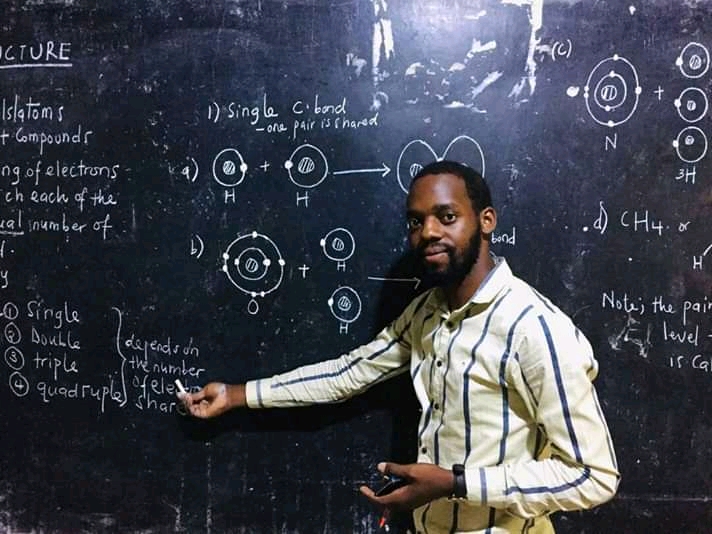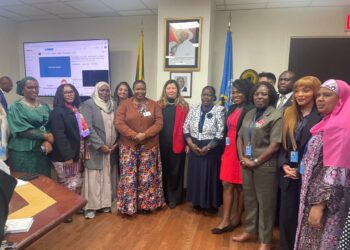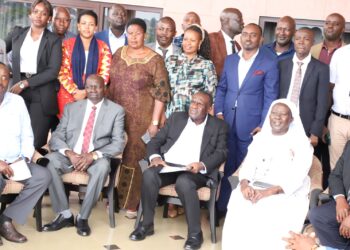The presidential directive of suspending school activities issued on 18th March, 2020 as a measure to curtail the spread of the Covid-19 pandemic, brought schooling to an abrupt suspension.
Students and their teachers have since been thrown into limbo. Fortunately, learning does not know any boundaries or situation. In a bid to eliminate laziness, many institutions have adopted online study processes through online classes. Also, local television stations have been manipulated as a means to include education programs to aid the students. Another step to facilitate the education process has been adoption of the social media platforms such as WhatsApp groups and Facebook pages where education content can always be uploaded and shared.
The prospect of social media teaching can both be alluring and repulsive, depending on one’s understanding of the internet and one’s experience with it.
Mr. Mayanja Edward is one of the many teachers who have continued to conduct lessons during the lockdown. He has adopted social media, in particular, Facebook as a teaching platform to not only facilitate harmonious collaboration with the students but also to ensure that the students’ minds are not overly relaxed.
Mr. Mayanja is a Chemistry and Biology teacher at St. Henry’s College -Namugongo and Green Valley High school -Kayanga.
He operates a Facebook page, Chemistry Better Project (CBP), unto which he occasionally uploads tutorials in form of series that help create an almost classroom environment.
On why he adopted the idea of conducting online classes, Mr. Mayanja says that his experience in the teaching sector and particularly as a science teacher has taught him about the bias that many students often develop towards science subjects and in particular Chemistry.
The quarantine period therefore provided an opportunity for him to correct the existing negativity towards the subject.
Also, inspiration from similar pages helped drive him into starting his own page to help satisfy his desire to share his knowledge and experience in education, a reason he stresses is the driving force behind his profession.
The science teacher says he opted for Facebook because, “unlike other social media platforms, it involves a wide range of facets essential in modern learning. These include collaborative planning, data analysis, resource sharing and progress updates concerning group work or research. These reasons make it almost as realistic as a timetabled session.”
He further states that, “Facebook has a wide range of advantages such as being easily accessible whereby you can access any page even from a Facebook account that isn’t yours. This means that the student can access learning sites through their guardian’s or parent’s account.
The fact that Facebook is the most popular social platform serves as an added positive to help reach out to bigger audiences.
Another advantage with Facebook is that it helps store the posted content for as long as the page is existing. This means that the student can always log in and access the posted tutorials at a time of their convenience. Even after the quarantine period is expired.”
However, Mr. Mayanja identifies a number of challenges that come with online education stating that the ease of creating a page or group gives rise to false information since not all pages are authentic and respect the teaching principles in Uganda and beyond.
He advises that students ought to keep in close contact with their teachers and class notes when taking up lessons on the internet.
“Another challenge is the fact that online education is time consuming from the side of the teachers since we take more time preparing for the lesson, editing out some parts before we can post the tutorial. This slows down the process of teaching and learning since we end up covering few topics.”
Despite possessing its own challenges, Mr. Mayanja appreciates the role that online education can play in the education sector of Uganda.
He therefore advises students to take up the initiative of subscribing to education related pages, groups and platforms to help better their grades in school and to aid them do away with laziness during this time when schools are suspended.
This call is in line with the numerous strategies being implemented by the Ministry of Education to help facilitate teaching of students and pupils during the lockdown period especially when social distancing is the surest means of limiting the spread of the virus.













